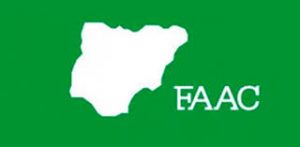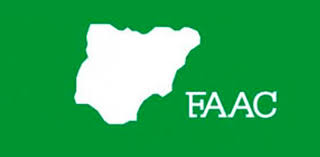Revenue allocation to federal, state and local governments has declined from a peak of N970.57bn in July 2021 to N680.783bn in May 2022, representing a 30 per cent reduction over the period.
The decrease in allocation to these levels of government reveals the fiscal challenges facing various levels of government in Africa’s biggest economy.
“It is obvious that with this outlook, state governments will not be able to execute capital projects, pay salaries and meet other needs. This is time for states to look inwards,” said Professor of Economics at Covenant University, Jonathan Aremu, in a telephone interview last night.
Nigeria earns its biggest revenue from crude oil, but it has paid N2.1tn in the first six months of the year and could pay another N4tn by the end of the year, according to the International Monetary Fund estimates.
The opaque and fraudulent subsidy regime has made it nearly impossible for the Nigerian National Petroleum Corporation to make remittances to the government consistently.

The Federal Government has raised its budgetary allocation of N443 billion for gasoline subsidy to N4 trillion and has received approval from the National Assembly.
The situation is worsened by declining oil production and theft. Oil production fell to 1.2 million barrels per day in April 2022 from 1.238 million barrels in March, according to OPEC Monthly Oil Market Report. This is far from the oil benchmark of 1.88 million barrels per day in the 2022 budget.
Company Income Tax in Nigeria fell from N472.52bn obtained in the third quarter of 2021 to N347.81 billion in the last quarter of 2021, indicating a 26 per cent decrease over the period, according to the National Bureau of Statistics,
“A lot of states did not think the revenue would decline so fast. The revenues would go down if their sources are declining. It costs more now to construct those projects, so states need to look inwardly. They also need to plug leakages because this is not the time to waste money at all,” Aremu said.
A Lagos-based senior financial analyst and Director at Bishop and Rooks, Mr Wole Oluyemi, said it was obvious that states might not continue to fund big projects and could default on many fronts.
“There is a limitation on the number of projects they can do. Those who have a high-risk appetite and still want to continue those projects will start owing salaries because something must give way. Projects will be abandoned and some of them will start borrowing in the form of bonds for projects so that they can continue with their plans,” Oleyemi said.
He noted that the situation had forced states to become creative in order to raise more Internally-Generated Revenue from within. Sri Lanka holds a lot of lessons for Nigeria. The country has defaulted on its debts for the first time in history, suspending $7bn repayments of loans to international creditors.
Though there are disagreements as to the causes of the crisis, some analysts attribute part of the country’s problem to the Chinese debt trap, with the country handing over one of its premier ports, Hambatota, to China to manage for 99 years in order to repay its debt.
Printing of currency in the face of inflation, arbitrary tax cuts and high food prices due to reduction in food production and ban on chemical fertilizers are also seen as culprits.
But these are similar to Nigeria. Nigeria faces high inflation, debt is over N40 trillion and its Eurobonds are nearing a junk status with investors demanding high-interest rates due to a perceived high-risk status.
The Chief Executive Officer of Centre for the Promotion of Private Enterprise, CPPE, Dr Muda Yusuf, said that investors perceived Nigeria as high-risk, explaining that risk premium must be paid when bonds were perceived as high-risk.
Nigeria has also borrowed millions of dollars to build railways and roads, but the conditions for such loans are shrouded in mystery.
A real sector market analyst, Ike Ibeabuchi, does not believe that Nigeria would reach Sri Lanka’s status, but cautioned that the terms of Chinese loans should be disclosed.
Aremu, on his part, said, “It is not bad to borrow, but negotiation is what matters. Nobody knows the terms and conditions given by China while lending money to Nigeria. From what we are seeing from other countries, it is not a sustainable negotiation. Because you are borrowing for the future, you have to let everybody know what you’re borrowing on their behalf,” Professor Aremu said.
Oluyemi disagreed, saying, “As a finance person, I am ready to collect loans from anyone as long as terms and conditions are favourable to me. If a bank that is not my preferred bank gives me money to build a house, why should I say no? If the terms and conditions are okay, why not?”


